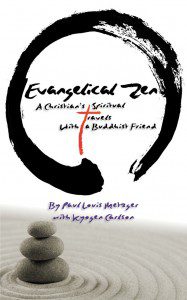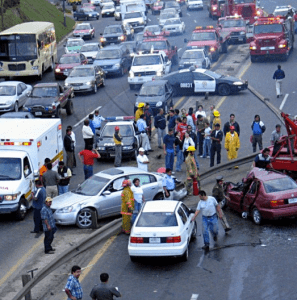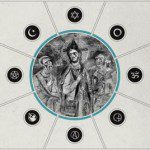Editors’ Note: This article is part of the Patheos Public Square on Moving Past Hatred. Read other perspectives here.
Like cars, SUVs and trucks, religions can become weapons if we are not careful. We need to “use” them well. The need to be aware of religions’ potency for good and evil has never been more pressing. The inter-religious world gets smaller by the day through globalization, just as the roads on which we drive get smaller and smaller the more vehicles are on the road and the faster we go. We need to become more mindful of our surroundings, and cultivate more space mentally as we drive down spiritual and physical paths of life.
I have witnessed people using cars as weapons. The same goes for religion. A little bit of religious knowledge in the hands of one not mindful of its power can be devastating. When one quotes a verse of the Bible or Quran or a sutra out of context to gain power over someone else rather than to control one’s own life, it can lead to harmful collisions. We need to place guards over our hearts so that we live well. As Proverbs 4:23 says, “Above all else, guard your heart, for everything you do flows from it” (Proverbs 4:23; NIV). Or as my Muslims friends tell me, the great jihad is the struggle within oneself to overcome evil.
In our book Evangelical Zen: A Christian’s Spiritual Travels with a Buddhist Friend, Abbot Kyogen Carlson gives some helpful tips for driving through life:
Shunryu Suzuki Roshi, an early Zen pioneer in the West, once said that, if you want to tame a bull, give him a large field. The bull is a metaphor for the self, particularly the difficult aspects of ego and id. Taming a bull is not something a weak human being can accomplish by overpowering the bull. Instead, he is tamed as he gradually becomes accustomed to his enclosure. It must be large enough to contain him without undue constraint. Zazen practice involves cultivating an awareness of the space around our thoughts, feelings, and reactivity. This is the large field. We are confronted with difficulties in life, but while these are problems to be met, the real difficulty is our own reactions to them. Taming our reactions is taming the bull. Manage that, and handling the problems themselves is much easier (Evangelical Zen, pages 33-34).

As Kyogen claims, we need to be mindful of the space around our thoughts, feelings, and reactions. As with driving a car, we need to practice the two second rule when practicing religion. If there is no space between vehicles or if we are not concentrating, we have no time to react in a safe manner when a driver swerves or halts in front of us. As a result, our reactions can become volatile. We must cultivate space around our thoughts, feelings and reactions, freeing our minds of clutter—even self-righteous clutter.
Some of the most self-righteous people are those driving cars; how many of us have thought or said, “It’s [always] the other guy’s fault; I am [always] entitled to the right of way”? Just because we own a car or have a driver’s license does not mean we are the kings and queens of the road. Other people have rights, too. We cannot do as we jolly well please. The same goes for religion. When we lack mindfulness of how the Scriptures we read, the prayers and meditations we recite, and the practices we engage in are intended ultimately to put guards around our hearts and lives, they become distractions, like loud music blaring and text messaging while driving. Collisions easily result.
I am not strong enough to control other drivers from cutting me off, but I can cut off unsafe reactions to them. Why do we sometimes ride other people’s bumpers or speed up when other drivers try to force their way into our lanes of traffic? Regardless of what it says of the other drivers, what do our responses say about us? We need to cultivate a state of mindfulness and model safe driving on the physical and spiritual paths of life. Daicho from Dharma Rain Zen Center, one of Kyogen’s disciples, writes in his reflection on Evangelical Zen, we live in an “ever more divisive world where there is such a strong urge to just dismiss ‘others’ and consider them worthless to talk to. The truth is, we dismiss them because engagement with them forces us to look at ourselves in a dreadfully honest way, which rocks our complacency about everything” (You can find his full statement here).
Such dreadful honesty with ourselves does not entail that we ignore harmful conditions generated by others who wrongly practice their spiritual traditions. But we should not take matters into our own hands and self-police people religiously. It is far better to engage in community policing, which also involves putting oneself under others’ surveillance. Such surveillance entails engaging people of other faith traditions in such a way as to make sure that our driving habits and patterns do not harm them, but together with them, help us all on our respective ways. That takes time, attentive listening, and mindfulness (which my Buddhist and Evangelical friends and I seek to cultivate during our monthly potlucks; see “Why Did the Buddhists and the Evangelical Christians Cross the Road? To have a potluck”). But it is critically important for all of us.
The days of religious hegemony in America are over. As a Christian, I lose my freedom to drive on the spiritual and physical highways of life the moment I do not grant others their space to drive. In all things, practice the Golden rule—which in our day of frantic driving includes the two second rule.














